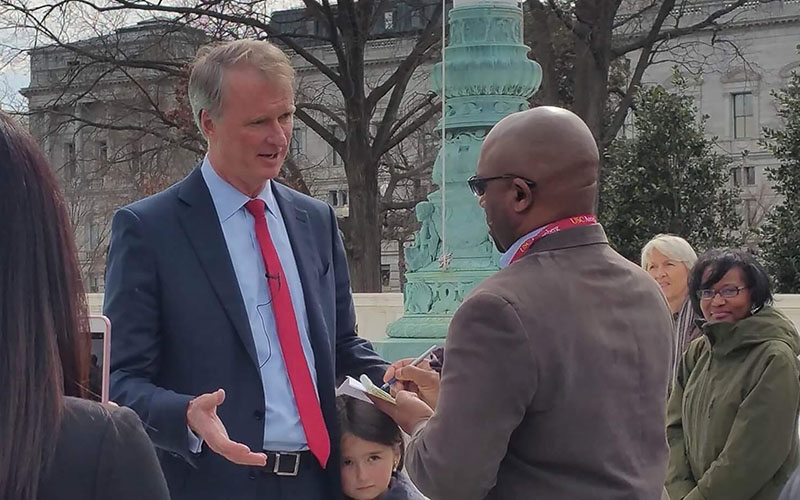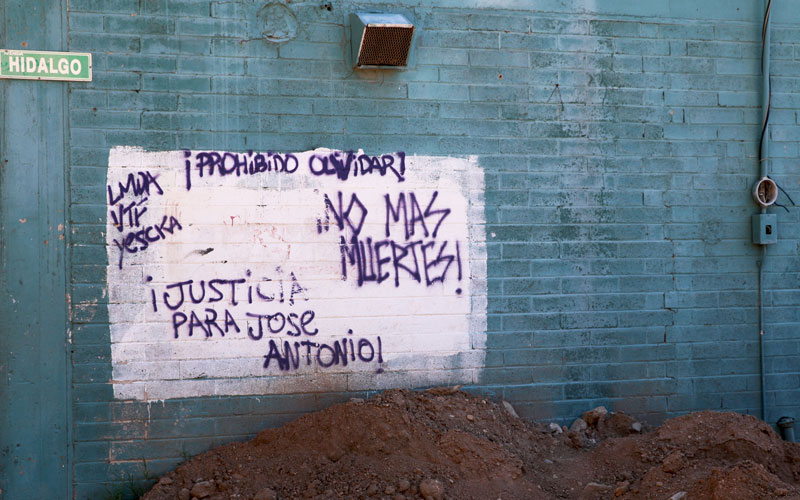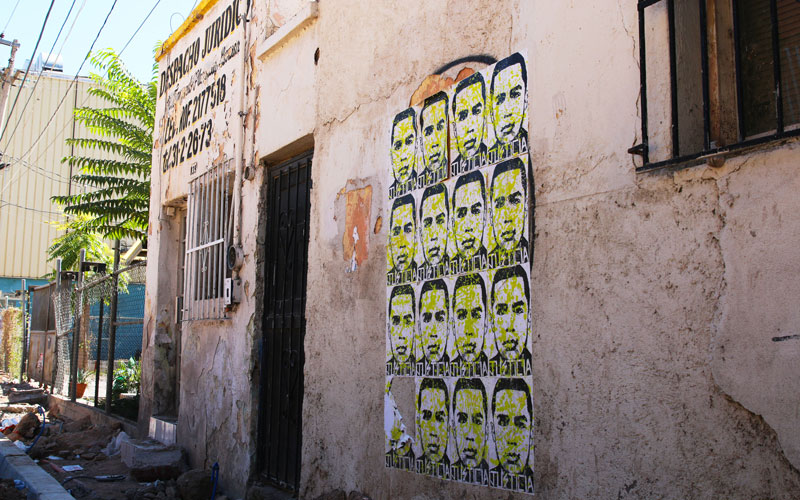WASHINGTON – The Supreme Court on Monday ordered a lower court to reconsider its decision to throw out a lawsuit that a Mexican family filed against the Border Patrol agent who fatally shot their son across the border.
An attorney for the Ciudad Juarez family said the ruling by the high court gives him another chance to argue that constitutional protections apply to noncitizens who were “victims of excessive force by a U.S. Border Patrol agent.”
The Texas case may still have a long way to go in the courts, but the ultimate outcome could affect a similar case in Nogales, where a Border Patrol agent in the U.S. fired across the border in 2012 and killed a Mexican youth.
In that case, the family of Jose Antonio Elena Rodriguez, 16, sued Border Patrol Agent Lonnie Swartz, who was on the Arizona side of the border when he repeatedly shot Rodriguez, who was on the Sonora side of the border.
The 9th U.S. Circuit Court of Appeals heard arguments in that case in October, where the judges acknowledged that “if the Supreme Court rules and gives us definitive instructions, we will follow those, but in the meantime we don’t know what’s going to happen.”
Officials at Customs and Border Protection, the National Border Patrol Council and the Department of Justice all declined to comment Monday on the border shooting cases or the Supreme Court’s decision.
But Robert Hilliard, the lawyer for the Ciudad Juarez family, said in a statement after the court’s ruling that “if excessive force is used, there will be constitutional consequences.”
“Border Patrol agents must abide by the very Constitution they took an oath to uphold,” Hilliard’s statement said. “When they draw their weapons and aim across our border, they now know that this is not a free-killing zone.”
The Texas case involves the 2010 shooting of 15-year-old Sergio Adrian Hernandez Guereca, a Mexican citizen who was on the Mexico side of the border when he was shot by Border Patrol Agent Jesus Mesa Jr., who was standing in the U.S.
Court records said Hernandez and his friends were playing a game of running across a culvert between Ciudad Juarez and El Paso, tapping the fence on the U.S. side and running back when Mesa detained one of the youths. Hernandez and the others ran back to the Mexican side of the culvert and hid.
-Cronkite News video by Noelle Lilley
But Mesa said the youths were throwing rocks, according to court documents, and he fired. Hernandez, who was hiding behind a pillar, was shot in the face and killed.
A Department of Justice investigation said the shooting came while “smuggler attempting a border crossing hurled rocks,” and that Mesa did not “act inconsistently” with training or policy on use of force.
The Hernandez family sued, but the 5th U.S. Circuit Court of Appeals ultimately found that Sergio could not claim a violation of his Fourth Amendment rights because he “had no ‘significant voluntary connection'” to the U.S. and was “on Mexican soil at the time he was shot.” While he may have had a Fifth Amendment claim, the circuit court said Mesa enjoyed qualified immunity for his actions.
But the Supreme Court ruled that the circuit court was wrong to say Mesa had immunity, saying there was no way for Mesa to know before he fired that Hernandez was not a U.S. citizen or on U.S. soil when he was killed.
The Supreme Court also ordered the lower court to reconsider the Hernandez case in light of the high court’s ruling last week in Ziglar v. Abbasi, which said six foreign men detained after the 9/11 attacks could not sue government officials.
Ruben Hayes, a Phoenix immigration lawyer and chair at the American Immigration Lawyers Association Arizona Chapter, said there were many arguments that went unexplored and that there were “a lot of questions the Supreme Court had regarding this case.”
“It’s a good decision for the purpose of trying to flesh out, ‘What is the law? Is there some kind of an issue here? What else needs to be discovered to further the analysis and the facts?'” Hayes said.
Hilliard said he “looks forward” to debating whether protections “apply to Sergio (Hernandez) and others like him,” who have been shot in similar cases along the Southwestern border.
“This decision affirms that the right to life is the single most fundamental human right and protecting it is paramount in our society,” Hilliard said of Monday’s decision.


